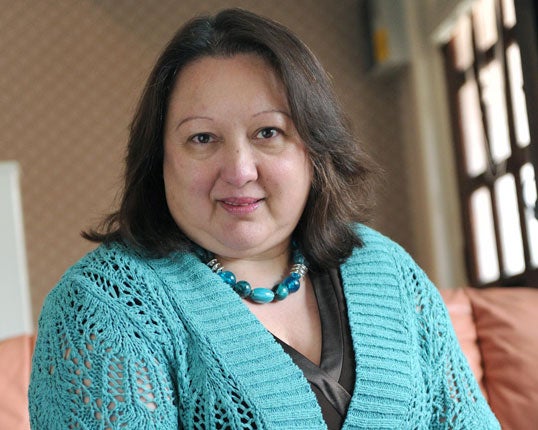Student who can't stay awake takes watchdog to court
Narcoleptic's case has implications for all disabled people in further education

Your support helps us to tell the story
From reproductive rights to climate change to Big Tech, The Independent is on the ground when the story is developing. Whether it's investigating the financials of Elon Musk's pro-Trump PAC or producing our latest documentary, 'The A Word', which shines a light on the American women fighting for reproductive rights, we know how important it is to parse out the facts from the messaging.
At such a critical moment in US history, we need reporters on the ground. Your donation allows us to keep sending journalists to speak to both sides of the story.
The Independent is trusted by Americans across the entire political spectrum. And unlike many other quality news outlets, we choose not to lock Americans out of our reporting and analysis with paywalls. We believe quality journalism should be available to everyone, paid for by those who can afford it.
Your support makes all the difference.A student who suffers from the chronic sleep disorder narcolepsy is to have her case heard by the Court of Appeal in London on Thursday, following a six-year battle against what she perceives to be disability discrimination by her university.
Shelley Maxwell is seeking to overturn a decision by the students' watchdog, the Office of the Independent Adjudicator, that it could not give a ruling on alleged disability discrimination. The hearing is being seen as a test case by Ms Maxwell and her lawyer. They argue the OIA's decision closes the door to hundreds of disabled students seeking justice if they have a complaint about how they have been treated at university.
"This case highlights widespread injustice and inequality suffered by disabled people in education," said Ms Maxwell's solicitor, Jaswinder Gill. "This is the first case of its kind being brought by a disabled person against the OIA. There are about 10 million disabled people in Britain – one in five of the population."
The OIA argues equally forcefully that its stance does not prevent it from solving disabled students' complaints.
Ms Maxwell's story began in 2004 when she enrolled on a degree course at Salford University to study military and international history. She has a form of narcolepsy which means she is prone to falling asleep during the day and cannot concentrate for more than two or three hours at a time.
Discussions with the university led her to believe that assistance would be available to help her through the course. However, she claimed this was inadequate once she began her studies. At one point, she needed somewhere to sleep during the day and was allocated an empty office. However, on a day when there was a fire drill, she was left alone indoors while everyone else was evacuated. She was also given a tape machine to record lessons – but it was of little use because she was unable to stay awake long enough to transcribe the notes. "It was an absolute nightmare," she said.
She filed a complaint to the university towards the end of her first year but was dissatisfied with the result. Salford offered to give her a print-out of all the lectures but by then, she claimed, it was too late for her to catch up. She then complained to the OIA, a body financed by university subscriptions which can – for free – hear students' complaints about the treatment they have allegedly received.
It took two years for it to issue a ruling, which stated that it could not issue a verdict on whether there had been disability discrimination. The OIA said it did consider her complaint to be justified and recommended compensation payment of £2,500 plus an offer from the university that she be permitted to repeat a year with proper support. "We do not believe the court's judgment in the Maxwell case effectively closes the door to disabled students using our service as a remedy when they have a complaint about their institution," added the OIA. "Since this case we have dealt with cases from other disabled students and we will continue to do so."
The university also agreed to strengthen its procedures for dealing with disabled students. Ms Maxwell, however, had started her degree at the age of 43 and did not feel able to resume it six years later at a time when fees had risen. She had also moved away from Salford to High Peak, Derbyshire.
She believed a ruling that the university had discriminated against her would be far more forceful in seeking change. When she took her case to the High Court, a judge agreed that the OIA was wrong to say it could not express views about discrimination, but said Ms Maxwell "lost" her case as to whether it could deliver an official finding. Mr Justice Foskett said he had "some sympathy with the claimant's submission".
Thursday's hearing will decide whether she can appeal against the court decision. Ms Maxwell said: "I am still in the dark as to whether or not disability discrimination took place. To have a definitive answer would mean I could embark on future studies knowing I should expect to receive a certain level of assistance from universities with regard to implementation of support packages."
Join our commenting forum
Join thought-provoking conversations, follow other Independent readers and see their replies
Comments